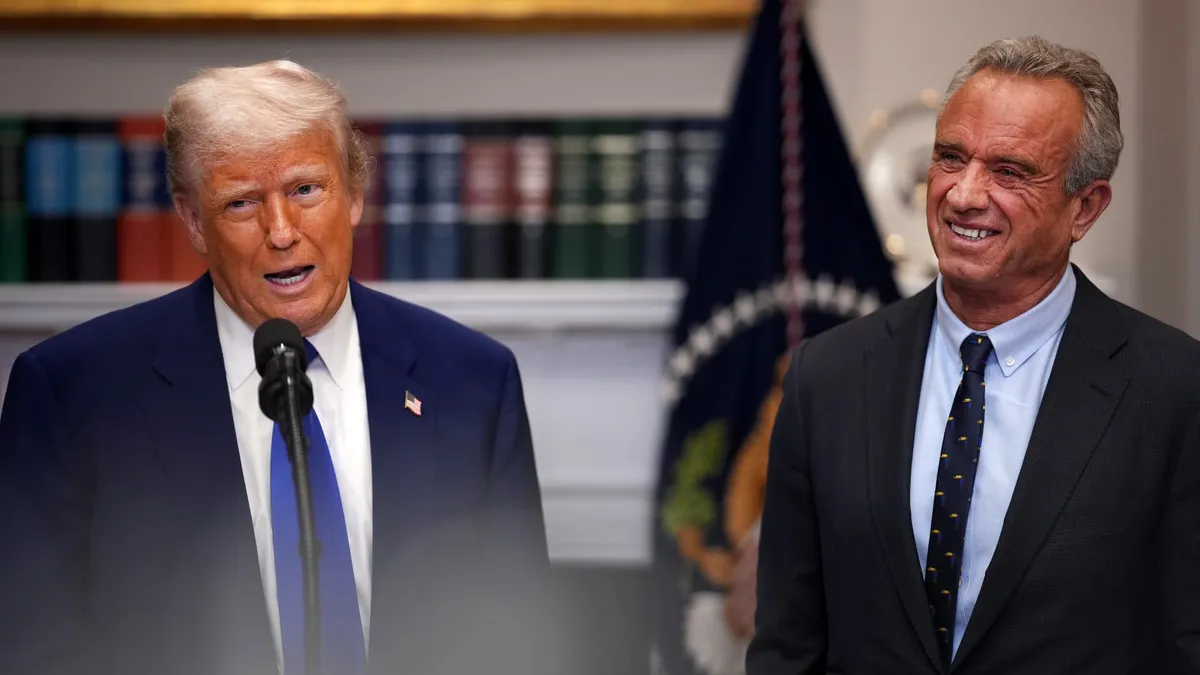
On Monday, President Donald Trump took significant steps to address the high cost of medications by reviving a controversial policy aimed at slashing drug prices. This initiative ties the government’s payments for certain medicines to the significantly lower prices found abroad. Through an executive order, Trump signed into action a renewed version of the most favored nation policy, which seeks to ensure that American consumers pay no more than the lowest price available globally.
Although Trump did not specify which countries would be targeted, he indicated that the policy would focus on other developed nations. "We are going to pay the lowest price there is in the world," he stated during a press event, emphasizing that the U.S. will seek to match the lowest prices offered internationally. However, White House officials did not disclose specific medications that would be affected by this executive order. They did mention that the announcement would encompass a broader scope than a similar policy attempted during Trump’s first term, which was limited to Medicare Part B drugs.
The administration's focus will be on medications that exhibit the largest price disparities and expenditures, which could include popular treatments for weight loss and diabetes known as GLP-1 drugs. Despite the ambitious goals of the policy, its actual effectiveness in lowering costs for patients remains uncertain. In a social media post, Trump claimed that drug prices could be cut by 59%, and during the press event, he suggested that reductions might even reach between 59% and 90%.
The announcement had mixed effects on the stock market, with shares of U.S. drugmakers reacting variably. While shares of Merck rose over 4%, both Pfizer and Amgen saw increases of more than 2%. Part of the executive order also targets foreign nations that currently have more negotiating power with pharmaceutical companies regarding drug prices. Trump asserted, "Starting today, the United States will no longer subsidize the health care of foreign countries," and declared an end to what he termed price gouging by Big Pharma.
To facilitate better pricing, the order instructs the Secretary of the Department of Health and Human Services (HHS) to encourage drug manufacturers to offer most favored nation prices directly to consumers. "We’re going to cut out the middlemen," Trump explained, highlighting a strategy aimed at enabling Americans to purchase medications at the best possible prices. The HHS Secretary will be required to establish clear price reduction targets within 30 days, leading to negotiations with the pharmaceutical industry.
In addition to domestic strategies, the order mandates the Food and Drug Administration (FDA) to explore the possibility of expanding drug imports from developed nations outside of Canada. This move aims to enhance competition and lower prices within the U.S. market. The administration's strategy also includes a directive for the Department of Justice and the Federal Trade Commission to enforce actions against any anti-competitive practices that keep drug prices inflated in the U.S.
Trump’s latest efforts come as U.S. prescription drug prices are reported to be two to three times higher than those in other developed countries, with some prices reaching up to ten times more in certain regions, according to the Rand Corporation. The pharmaceutical industry, which is already preparing for Trump’s proposed tariffs on imported drugs, warns that the most favored nation policy could negatively impact their profits and, consequently, their capacity to innovate and develop new medicines.
Experts have mixed opinions about the potential efficacy of the most favored nation policy. Some health policy analysts argue that it may not effectively reduce medication costs due to the inherent economics of the global drug marketplace, where 70% of pharmaceutical profits originate in the U.S. They caution that companies might opt to withdraw from less profitable foreign markets rather than absorb significant losses from U.S. pricing cuts.
In summary, while Trump’s executive order aims to tackle the pressing issue of high medication costs, it brings forth a complex landscape of challenges and potential pushback from the pharmaceutical industry. With more than three in four U.S. adults indicating that medication costs are unaffordable, the stakes are high for the administration to deliver tangible results. As the situation develops, the effectiveness of these policies in actually lowering prescription drug prices will be closely monitored by both consumers and industry stakeholders.